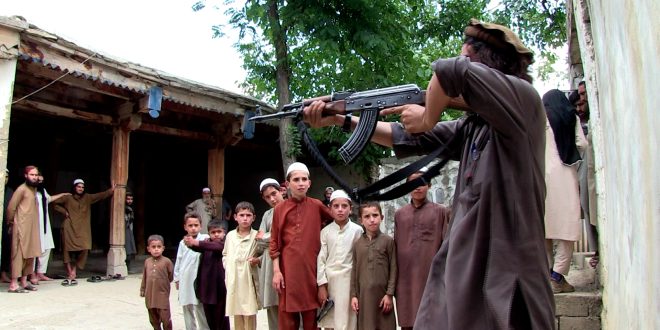AT News
KABUL – In a recent and significant development in Afghanistan, the Islamic State Khorasan Province (ISKP) has stirred controversy by releasing a 59-page Pashto booklet. This document not only nullifies the Fatwa issued by the Islamic Emirate of Afghanistan (IEA) but also extends an invitation to low-ranking Taliban members to join the ISKP’s ranks.
The roots of this dispute trace back to the Fatwa issued by the Taliban’s Mufti, Mufti Abdul Rauf Etminan, which banned Afghans from participating in Jihad outside Afghanistan’s borders. Mufti Etminan argued that only defensive Jihad is obligatory. In response, the ISKP presented a contrasting interpretation, calling the Taliban a nationalist movement rather than an Islamic one, and dismissing their Fatwa in light of Sharia.
This development sheds light on a complex and concerning situation, revealing a dispute over religious authority, alliances, and an ongoing power struggle within Afghanistan’s turbulent landscape. The Fatwa, issued by the Taliban, held significance rooted in Sharia law, serving as a religious decree aimed at consolidating their authority over Afghanistan. The ISKP’s decision to reject this Fatwa represents a direct challenge to the Taliban’s religious and political legitimacy.
The ISKP’s invitation to low-ranking Taliban members to join its ranks is indeed a troubling development. It underscores the ISKP’s willingness to exploit disillusionment and dissent within the Taliban’s ranks, potentially leading to additional conflict and division. This move serves as a stark reminder of the persistent threat posed by extremist groups that seek to exploit vulnerabilities within Afghanistan.
It is noteworthy that the ISKP’s rejection of the IEA’s Fatwa is not an isolated incident. An ongoing connection exists between the ISKP and the Tehrik-i-Taliban Pakistan (TTP), aimed at countering the influence and control of the Taliban in Afghanistan. The TTP has already provided a controversial interpretation of the Taliban’s decree, suggesting a potential alignment with the ISKP’s stance in rejecting the Fatwa.
 Afghanistan Times
Afghanistan Times




